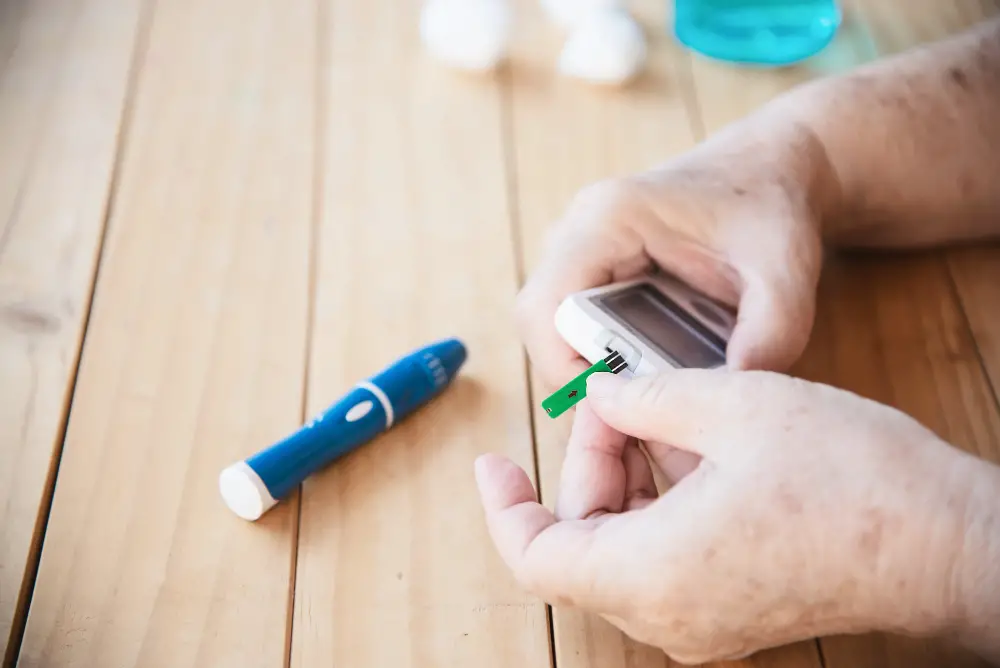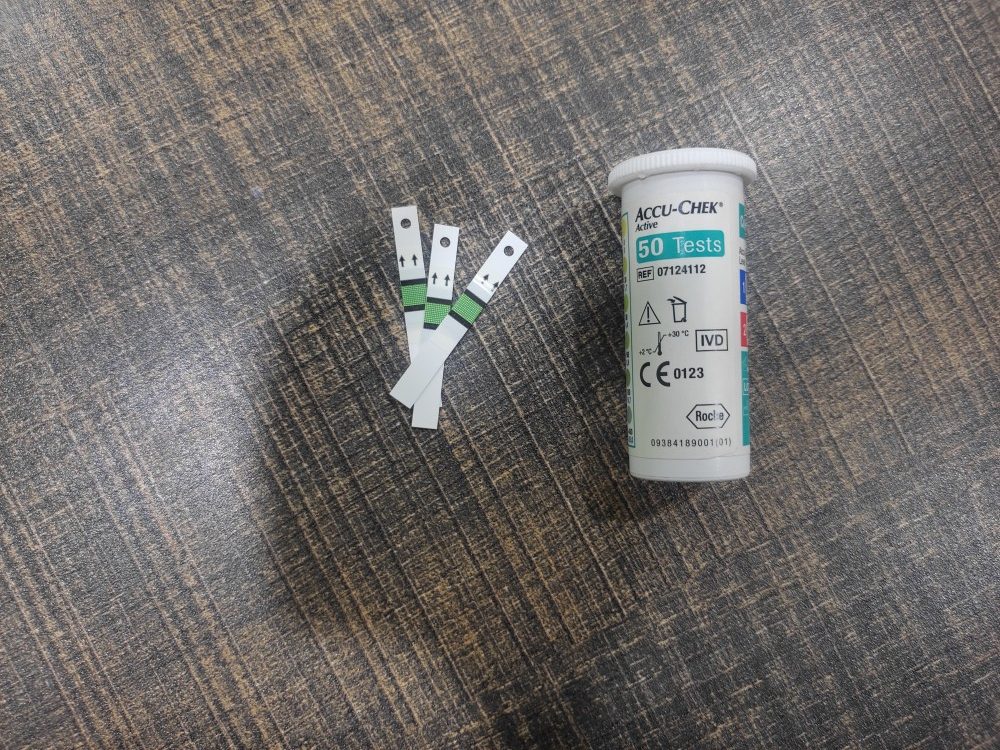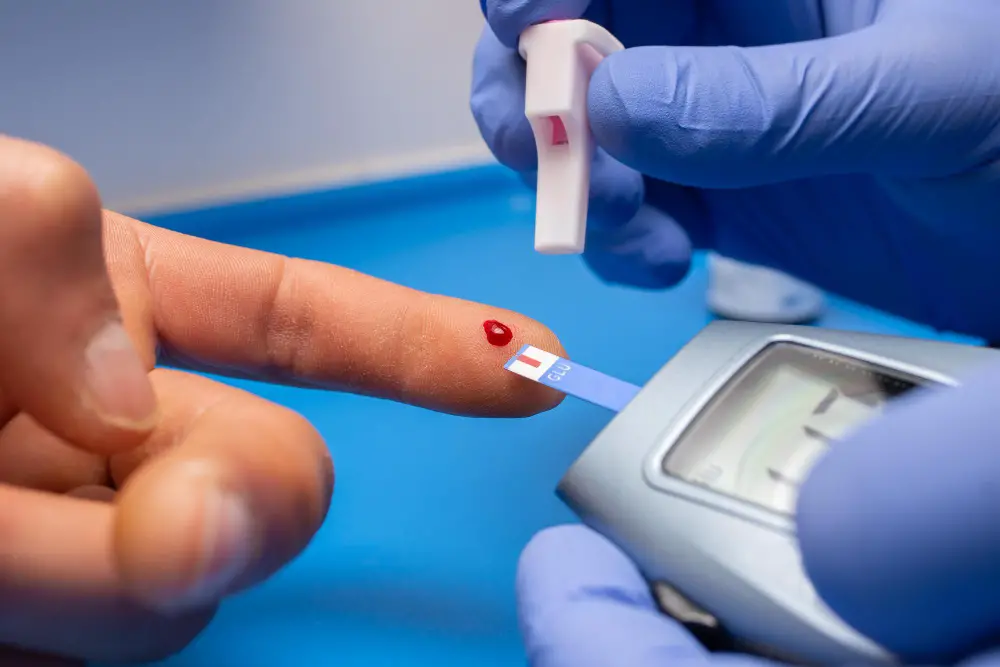
Diabetes Testing Strips: Are They Universal Across Brands?
-
- Dr. Junaid Arshad
- May 3, 2023
- 0 comments
Table of Contents
Are All Glucometer Strips The Same?
No, not all glucometer strips are the same. Each company’s glucometer strips are designed to work specifically with their own glucometer devices. The strips are calibrated to provide accurate readings when used with the matching device.
Using strips from one company in another company’s glucometer can lead to inaccurate readings, which can have serious consequences for people with diabetes.
Introduction
Diabetes is a chronic illness that affects millions of people around the world.
To manage diabetes, people often need to regularly monitor their blood glucose levels.
One way to do this is by using a glucometer, which measures the glucose level in a person’s blood.
Many people with diabetes use diabetes testing strips in conjunction with their glucometer to get accurate readings.
But what happens if a person wants to use testing strips from one company in another company’s glucometer?
Since sugar testing strips can be costly, people often inquire about alternative strips that are more affordable.
In this article, we’ll explore this question in more detail and provide some answers.
What are Diabetes Testing Strips?

Diabetes testing strips are small, disposable strips that are used to measure the level of glucose in a person’s blood.
These strips are inserted into a glucometer, which then reads the glucose level in the blood sample.
Testing strips are available from various companies and can be purchased over the counter or through a prescription.
They are typically used multiple times a day by people with diabetes to monitor their glucose levels and adjust their treatment plans accordingly.
What is a Glucometer?

A glucometer, also known as a blood glucose meter, is a small device that measures the glucose level in a person’s blood.
It does this by analyzing a small blood sample that is typically obtained by pricking a person’s finger with a small needle.
Glucometers are used by people with diabetes to monitor their glucose levels and adjust their treatment plans accordingly.
There are many different types of glucometers available from a variety of companies.
Can You Use Diabetes Testing Strips from One Company in Another Company’s Glucometer?
The short answer is no, you should not use diabetes testing strips from one company in another company’s glucometer. The reason for this is that each company’s testing strips are designed to work with their specific glucometer. They are calibrated to provide accurate readings when used together. Using testing strips from one company in another company’s glucometer can lead to inaccurate readings, which can have serious consequences for people with diabetes.
In addition to accuracy concerns, using testing strips from one company in another company’s glucometer can also void the warranty on the glucometer.
Many glucometer manufacturers require the use of their specific testing strips in order to maintain the warranty.
It’s important to note that while it may be tempting to use testing strips from one company in another company’s glucometer to save money, it’s not worth the risk.
Accurate glucose readings are essential for managing diabetes and avoiding serious health complications.
What Should You Do if You Need to Switch Glucometers?
If you need to switch glucometers for any reason, it’s important to talk to your healthcare provider first.
They can provide guidance on which glucometer to choose and how to transition to a new device.
It’s also important to follow the instructions provided with your new glucometer and to use the testing strips designed for that specific device.
The Harmful Consequences of Uncontrolled Blood Sugars
High blood sugar levels can cause damage to organs and tissues throughout the body, leading to a wide range of complications.
In this section, we will discuss the devastating consequences of uncontrolled blood sugars and why diabetes management is crucial for maintaining good health.
Cardiovascular Complications

Uncontrolled blood sugars can damage blood vessels, leading to a higher risk of cardiovascular complications such as heart attacks, stroke, and peripheral artery disease.
High blood sugar levels can also cause high blood pressure, which further increases the risk of heart disease.
Nerve Damage

Prolonged high blood sugar levels can damage nerves, leading to a condition called diabetic neuropathy.
This can cause numbness, tingling, and pain in the hands, feet, and legs.
It can also affect other organs, such as the digestive system and urinary tract.
Eye Damage

Persistently raised blood sugars can cause damage to the blood vessels in the eyes, leading to a condition called diabetic retinopathy.
This can cause vision problems and, in severe cases, blindness.
Early detection and management of diabetes can help prevent or slow the progression of this condition.
Kidney Disease

High blood sugar levels can cause damage to the blood vessels in the kidneys, leading to diabetic nephropathy.
This can lead to kidney damage or failure, requiring dialysis or a kidney transplant.
Patients with kidney disease are also at an increased risk of heart attack.
Skin Complications

Uncontrolled blood sugars can cause skin complications, such as dry skin, bacterial infections, and fungal infections.
It can also slow down the healing process, leading to chronic wounds.
Increased Risk of Infections

Uncontrolled blood sugar levels can weaken the immune system, making it harder for the body to fight off infections.
This can lead to an increased risk of infections, such as urinary tract infections, skin infections, and respiratory infections.
Mental Health Issues

Living with diabetes can be stressful and overwhelming, leading to mental health issues such as anxiety and depression. Uncontrolled blood sugars can also affect cognitive function, leading to memory problems and difficulty concentrating.
Dental Complications

High blood sugar levels can lead to dental complications, such as gum disease, tooth decay, and fungal infections in the mouth.
Proper dental care, including regular checkups and cleanings, is essential for people with diabetes.
Increased Risk of Cancer

Several studies have found a link between diabetes and an increased risk of certain types of cancer, such as liver, pancreatic, and colorectal cancer.
While more research is needed to understand this link fully, managing blood sugar levels may help reduce the risk of developing these cancers.
Conclusion
In conclusion, managing blood sugar levels is crucial for preventing the devastating consequences of uncontrolled diabetes. Regular monitoring of blood sugar levels is a key component of diabetes management, and using diabetes testing strips is an essential part of this process.
However, it’s essential to ensure that you’re using testing strips that are compatible with your glucometer. Using diabetes testing strips from one company in another company’s glucometer can lead to inaccurate results and may compromise your diabetes management.
It’s always best to use testing strips and glucometers from the same manufacturer or to check with your healthcare provider to ensure compatibility.
By following proper diabetes management protocols and using compatible testing supplies, you can help reduce the risk of complications and maintain good health.



